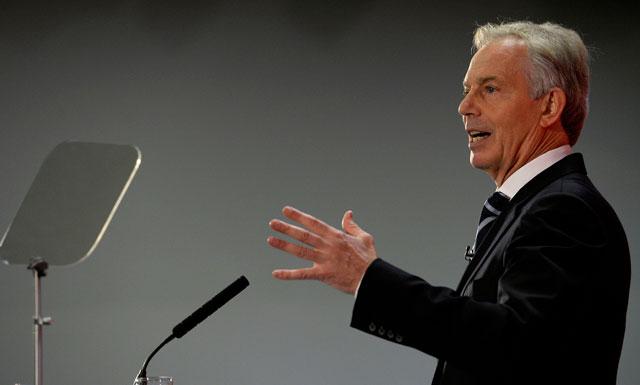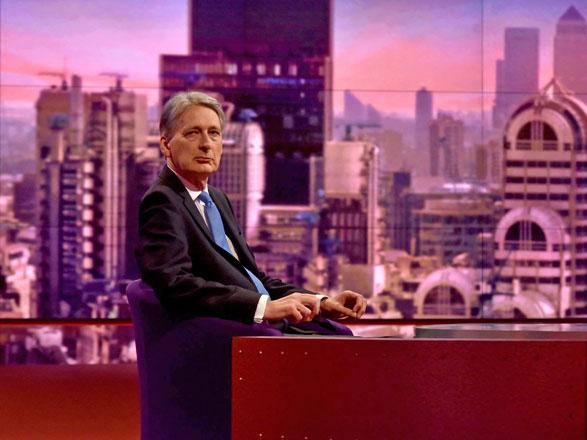You are here
Finance, transport sectors weigh on British productivity — ONS study
By Reuters - Mar 06,2014 - Last updated at Mar 06,2014
LONDON — British finance and transport firms have struggled with particularly weak productivity since 2007, according to an official study which gave no details on why the problem was so acute in these sectors.
Productivity has been a major concern in Britain since the financial crisis and last year’s economic recovery has not boosted workers’ efficiency as much as the Bank of England (BoE) expected — potentially weighing on how much Britons can earn in the long term.
Service businesses account for more than three quarters of British output, and 79 per cent of total hours worked.
“Estimates of productivity in the services industry... suggest that recent weakness is accounted for by several specific sub-industries — including finance and insurance, accommodation and food, and transport and storage services,” the report from the Office for National Statistics (ONS) said.
An ONS official said it was not clear why productivity was poor in those particular services.
But the report showed productivity has returned to pre-downturn trend rates in other types of services.
Many economists say low productivity is partly explained by lower-than-expected job losses during the recession that followed the financial crisis.
A business survey on Wednesday showed British companies hired staff at the fastest pace in at least 16 years last month.
Finance Minister George Osborne said last month productivity growth was disappointing, and put most of the blame on the slowness of a recovery in bank lending after the 2008 financial crisis.
Data on Monday showed lending to businesses declined again in January, and many small and medium-sized firms still complain of a lack of access to funding to pay for the investment that can make workers more productive.
An analysis from the ONS in January showed that while Britain enjoyed the strongest productivity growth among Group of 7 economies between 1991 and 2007, its performance was the weakest between 2007 and 2012.
BoE policy maker Ben Broadbent said last week that although there are grounds for optimism about an improvement in productivity, it may not approach US levels even if international headwinds recede.
Separately, a study by a leading research institute said that a pledge by Britain’s government to slow immigration could make the economy 11 per cent smaller by 2060 and taxpayers would have to fund higher public spending.
Immigration has become a hot issue ahead of elections in 2015 and the end of restrictions on workers from Romania and Bulgaria.
Prime Minister David Cameron promised in the run-up to the last election in 2010 to slash net migration to the “tens of thousands” by 2015, down from the 200,000 a year expected under current trends.
But a halving of net migration over the period to 2060 would have “strong negative effects” on the economy, said the new study, published by the independent National Institute of Economic and Social Research.
“The level of both GDP [gross domestic product] and GDP per person fall during the simulation period by 11 per cent and 2.7 per cent respectively,” it indicated.
Furthermore, lower numbers of immigrants, who tend to be young, would add significantly to public spending, as a share of the economy, in order to care for a generally older population.
“To keep the government budget balanced, the labour income tax rate has to be increased by 2.2 percentage points in the lower migration scenario,” the report indicated.
That meant net wages would be 3.3 per cent lower in 2060 than if immigration flows remain unchanged, it noted.
Under pressure from the anti-immigration UK Independence Party, Cameron has said he wants to restrict the relocation of migrants from poorer European Union (EU) states to richer ones, challenging one of the central tenets of the EU.
Deputy Prime Minister Nick Clegg, whose Liberal Democrats share power with Cameron’s Conservatives, said curbing immigrant numbers would damage the economy.
Related Articles
Campaigning in Britain's closest election in decades began on Monday after Prime Minister David Cameron met Queen Elizabeth to tell her parliament had been dissolved, teeing up a fraught battle to govern a $2.8 trillion economy.
Former prime minister Tony Blair plunged into Britain's general election fray on Tuesday, sounding a warning about the dangers of the country leaving the EU.
LONDON — British Finance Minister Philip Hammond said on Sunday he might be able to relax his grip on public spending at the end of this yea














